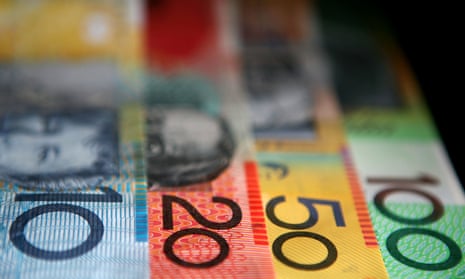The Australian dollar has slid to its lowest level against its US counterpart since early June, as a rally in the greenback continued.
On Monday evening the local unit stood at US73.22c, down from US73.89c on Friday.
Donald Trump’s presidential election victory has put a fire under the US currency as investors bet that the incoming administration would boost government spending, causing higher inflation and interest rates.
The trend continued when Federal Reserve chair Janet Yellen signalled last week that a December rate rise in the United States was increasingly likely.
$AUD continues to decline against the Greenback, fetching 73.27 US cents #FX #Bloomberg #currency pic.twitter.com/qLOH0TeCVI
— CommSec (@CommSec) November 21, 2016
A huge selloff on the global bond market has also seen money flow into the greenback, putting further pressure on other currencies such as the Aussie.
National Australia Bank foreign exchange strategists have forecast the Aussie dollar to drop towards US70c during 2017, and even lower in 2018.
Many economists expect the recent rise in commodity prices to go into reverse as the impact of China’s last round of monetary stimulus wears off and the country’s big importers of coal and iron ore run down inventories again.
Rio Tinto, Australia’s biggest producer of iron ore, confirmed on Monday that it is shedding 500 jobs in its operations in Western Australia amid expectations that the recent peak of nearly $80 a tonne for the steel-making commodity would not be sustained.
But Goldman Sachs struck a more optimistic note for the Australian economy, saying in a note to clients on Monday that the dollar could rebound over US80c if commodity prices hold.
Stock markets around Asia Pacific were also subdued by the continued strength of the Trump effect.
Hong Kong, Shanghai and South Korea were all lower while the ASX/S&P200 in Australia was down 0.2%. Tokyo bucked the trend rising 0.8% helped by the falling yen which boosts the country’s export-focused manufacturers.
“The markets driven by Trump may be just about to have run their course for now,” said Toru Ohara, chief investment officer at Okasan Asset Management in Tokyo.
“A rise in interest rates is, generally speaking, not good thing for stocks, especially for emerging markets. But if you think that US bond yields, which have been falling since 1982, may be bottoming out, that could mean the end of a low-growth/ low-inflation regime.”

Comments (…)
Sign in or create your Guardian account to join the discussion